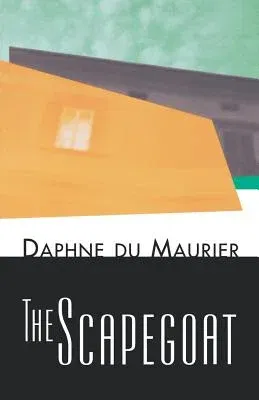Someone jolted my elbow as I drank and said, 'Je vous demande pardon, '
and as I moved to give him space he turned and stared at me and I at
him, and I realized, with a strange sense of shock and fear and nausea
all combined, that his face and voice were known to me too well.
I was looking at myself.
Two men--one English, the other French--meet by chance in a provincial
railway station and are astounded that they are so much alike that they
could easily pass for each other. Over the course of a long evening,
they talk and drink. It is not until he awakes the next day that John,
the Englishman, realizes that he may have spoken too much. His French
companion is gone, having stolen his identity. For his part, John has no
choice but to take the Frenchman's place--as master of a chateau,
director of a failing business, head of a large and embittered family,
and keeper of too many secrets.
Loaded with suspense and crackling wit, The Scapegoat tells the double
story of the attempts by John, the imposter, to escape detection by the
family, servants, and several mistresses of his alter ego, and of his
constant and frustrating efforts to unravel the mystery of the enigmatic
past that dominates the existence of all who live in the chateau.
Hailed by the New York Times as a masterpiece of artfully compulsive
storytelling, The Scapegoat brings us Daphne du Maurier at the very
top of her form.

